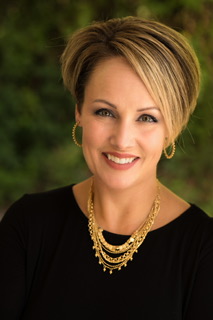Email: [email protected]

In a home sale, both the buyer and the seller have to pay what are called closing costs. These final expenses include an entire list of taxes, fees and other miscellaneous costs. While sellers usually pay some of the closing costs, buyers still need to prepare for their share of the bill. Here we’ll go over what the closing costs for buyers are in a home sale for a better understanding of what to expect.
When you get a mortgage, lenders charge additional fees for various aspects of the process. These fees are usually due at closing along with the rest of the buyer closing costs. These fees vary from one lender to the next and it’s a good idea to inquire about them early in your mortgage conversations. Shopping around for different loan estimates can save you money on closing and help you get better terms on the mortgage itself. Lender fees often consist of things like application fees, document creation fees and prepaid interest.
The 3rd party fees can be the most complicated part of buyer closing costs as they come from a long list of sources. 3rd party fees include things like appraisal fees, credit report fees, tax service fees and mortgage insurance. Like lender fees, these costs vary dramatically from one provider to the next. Individually these fees are inexpensive but they add up quickly, so it’s important to budget for them ahead of time and shop around for the best quote. As a buyer you have a choice in most of these services, but some fees are fixed based on mortgage terms and other agreements.
The third category of closing costs for buyers are homeowner fees. Unlike the other fees described above, most homeowner fees are recurring. Some common examples of homeowner fees include property taxes, homeowner’s insurance, escrow account fees and any applicable homeowner association dues. The property taxes will vary by location and your income while homeowner’s insurance fees will be determined by your home’s value and the amount of your down payment. Escrow account fees pay for setting up a temporary holding account for taxes and insurance as part of the home buying transaction and homeowner’s association fees only apply in certain areas.
Homebuyer closing costs usually amount to approximately 3% to 5% of the home’s total purchase price. When added up, this is no small amount of money, so it’s key to factor these costs into your budget and financial planning early in your home buying process. Luckily, for many of these costs there are less expensive options for buyers willing to do more work—any research and time spent looking for a better deal can save thousands on top of what you’re already paying for the home.
No matter what your financial situation, always clarify the costs with your lender and other parties so you avoid unpleasant surprises. The more prepared you are, the easier the entire process will be for everyone involved.

Originally from the midwest, Natalie and her husband Brian spent many years following his career but knew they were forever home when they made it to the Lowcountry. During vacations on Kiawah Island, they would dream of retiring to the South Carolina coast. When an opportunity presented itself to move to Bluffton much earlier than they envisioned, it was a “no brainer” and has proven to be one of their family’s best decisions. The two things Natalie loves most about the area are the community’s welcoming attitude and the always changing, but consistently breathtaking, views from the Lowcountry bridges. “It seems that everyone you meet in Bluffton and Hilton Head loves their community and genuinely wants you to fall in love with it, too…whether it’s for a week of vacation or to plant your own long-time roots.”